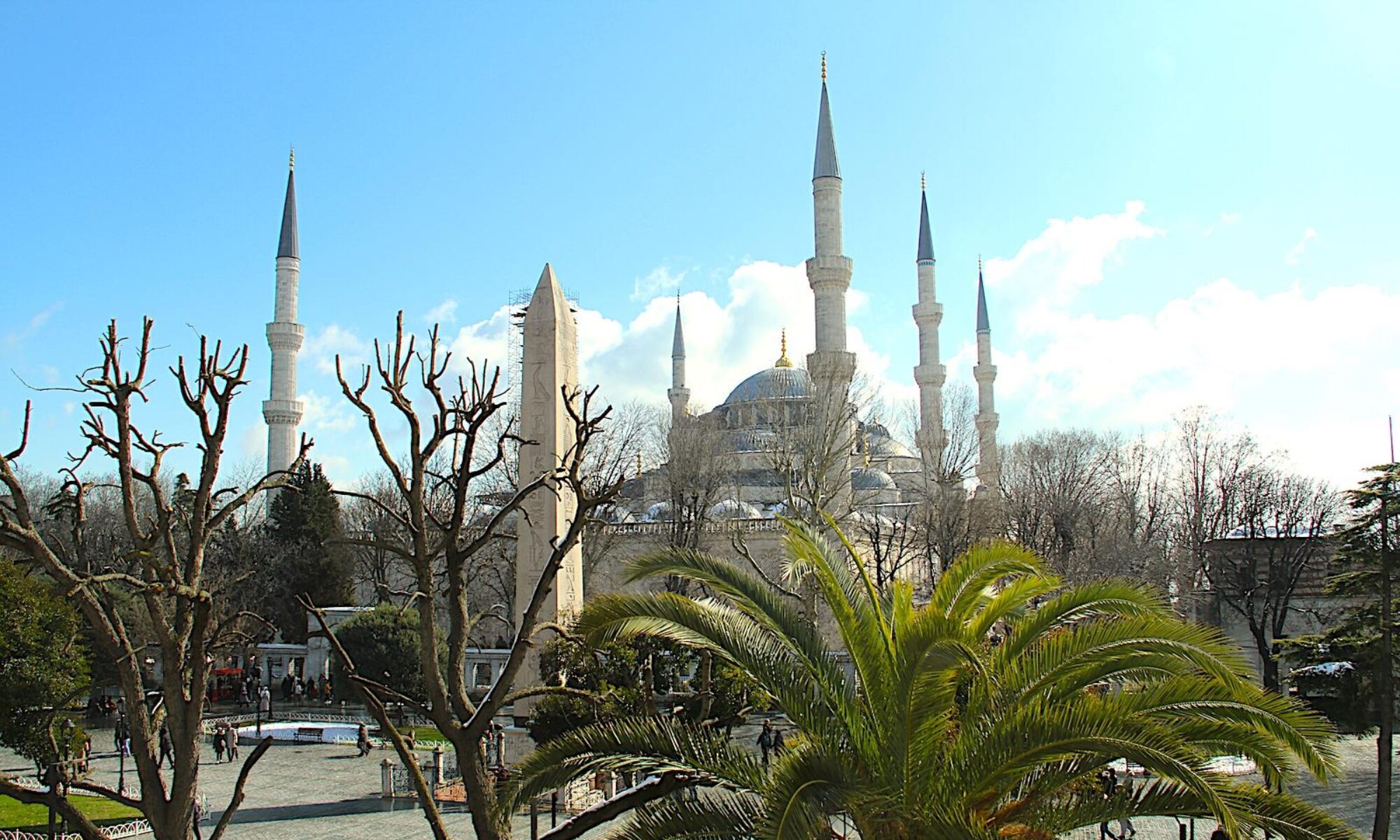The broad scope of Istanbul markets is a vibrant reflection of the city’s rich history and cultural diversity, offering a kaleidoscope of shopping experiences that cater to every taste and budget. Each has unique character and charm, from the grand and historic bazaars to the lively weekly markets.
The Grand Bazaar, a sprawling, covered market, exemplifies Istanbul’s long-standing role as a significant trading hub. Here, you can find a dazzling array of traditional Turkish goods, from carpets and jewellery to ceramics and spices, all housed within a labyrinth of vaulted passageways. The Spice Bazaar, with its intoxicating aromas and vibrant colours, is a feast for the senses, offering a wide selection of spices, dried fruits, nuts, and Turkish delights. These historic bazaars are not just places to shop; they are living museums, where you can witness the craftsmanship and trade traditions that have been passed down through generations.
Beyond the grand bazaars, Istanbul’s weekly markets offer a glimpse into the city’s everyday life. These bustling open-air markets, held on different days of the week in various neighbourhoods, are where locals buy fresh produce, clothing, household goods, and more. The Fatih Market, one of the largest in Istanbul, is a vibrant spectacle of sights and sounds, with vendors calling out their wares and shoppers haggling for the best prices.
The Yeşilköy Market, renowned for its extensive selection of clothing and accessories, is a popular destination for fashion enthusiasts seeking bargains. These weekly markets provide a unique opportunity to experience the local culture and interact with friendly vendors, offering a more authentic and immersive shopping experience. Whether you’re seeking traditional treasures or everyday essentials, Istanbul’s diverse markets provide every shopper with a treasure trove of discoveries.
Top 10 Istanbul Markets – Table of Contents
Istanbul Market Days
| Market | Mon | Tue | Wed | Thu | Fri | Sat | Sun |
|---|---|---|---|---|---|---|---|
| Grand Bazaar | Yes | Yes | Yes | Yes | Yes | Yes | |
| Spice Bazaar | Yes | Yes | Yes | Yes | Yes | Yes | Yes |
| Arasta Bazaar | Yes | Yes | Yes | Yes | Yes | Yes | Yes |
| Beyazit Books | Yes | Yes | Yes | Yes | Yes | Yes | Yes |
| Mahmutpaşa | Yes | Yes | Yes | Yes | Yes | Yes | |
| Feriköy Antiques | Yes | ||||||
| Feriköy Organic | Yes | ||||||
| Ulus Society | Yes | ||||||
| Fatih Bazaar | Yes | ||||||
| Kadıköy Market | Yes | Yes | |||||
| Kasımpaşa Market | Yes | ||||||
| Yeşilköy Market | Yes |
Top 10 Istanbul Markets
The Grand Bazaar – Diverse Market
Location: Kapalı Çarşı, Beyazıt, 34126 Fatih/İstanbul (note: covers a vast area). The official site website link (Turkish only) and the official Turkish Museums website. Opening Hours: Monday – Saturday: 08:30 – 19:00, closed Sundays and public/religious holidays. Entrance Fee: Free to enter.
The Grand Bazaar (Kapalı Çarşı, meaning “Covered Market” in Turkish) is one of the world’s oldest and largest covered markets, with a history dating back to the 15th century. Its construction began shortly after the Ottoman conquest of Constantinople in 1453, under the reign of Sultan Mehmed II. Initially, it was a small trading centre, but it rapidly expanded over the centuries, becoming a vital hub for commerce and a central part of Istanbul’s economic and social life.
The bazaar’s labyrinthine network of streets and shops evolved organically, with additions and renovations reflecting the city’s changing tastes and needs. It has survived numerous fires and earthquakes throughout its history, and has been rebuilt and restored, thereby maintaining its historical significance.
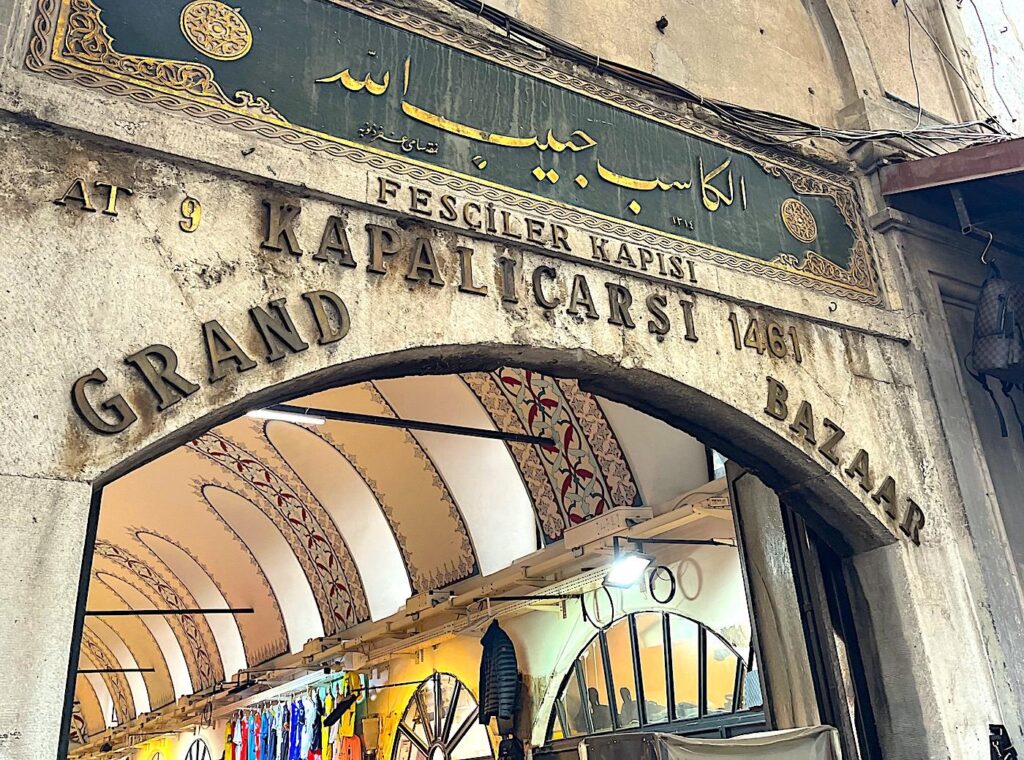

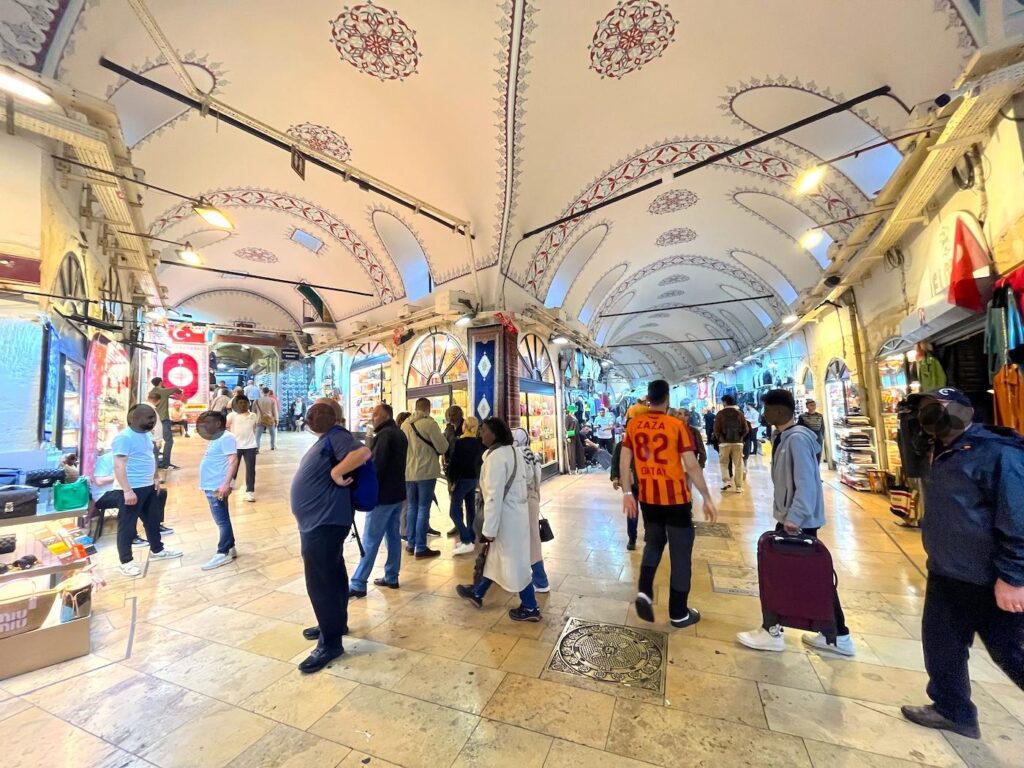
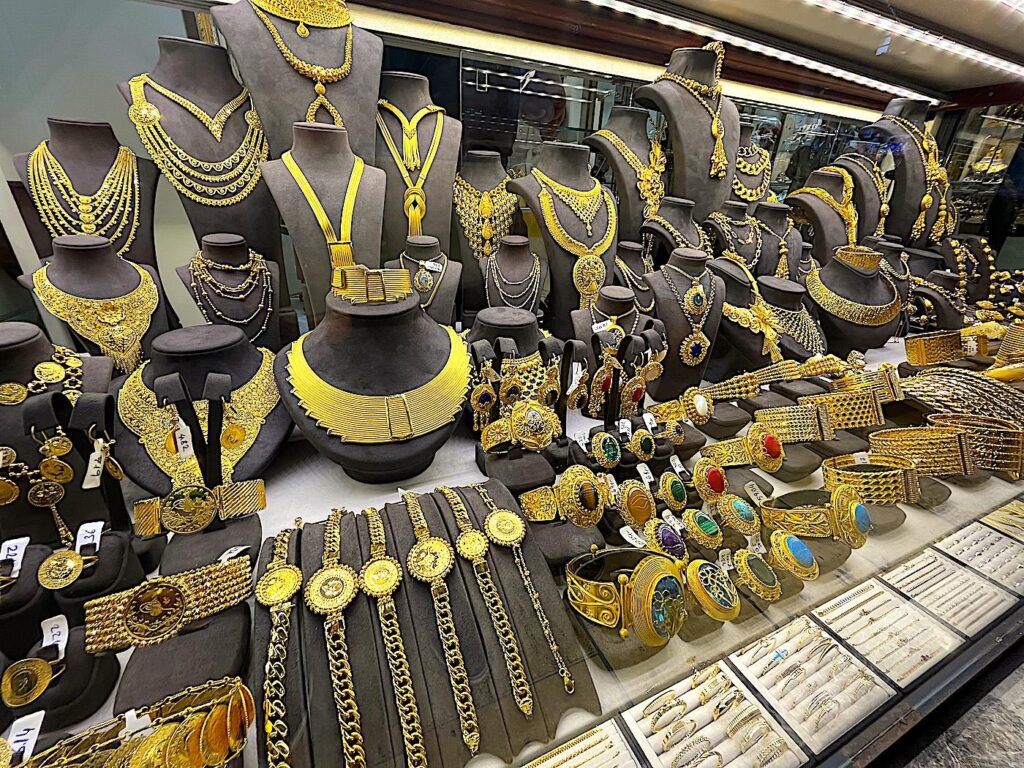
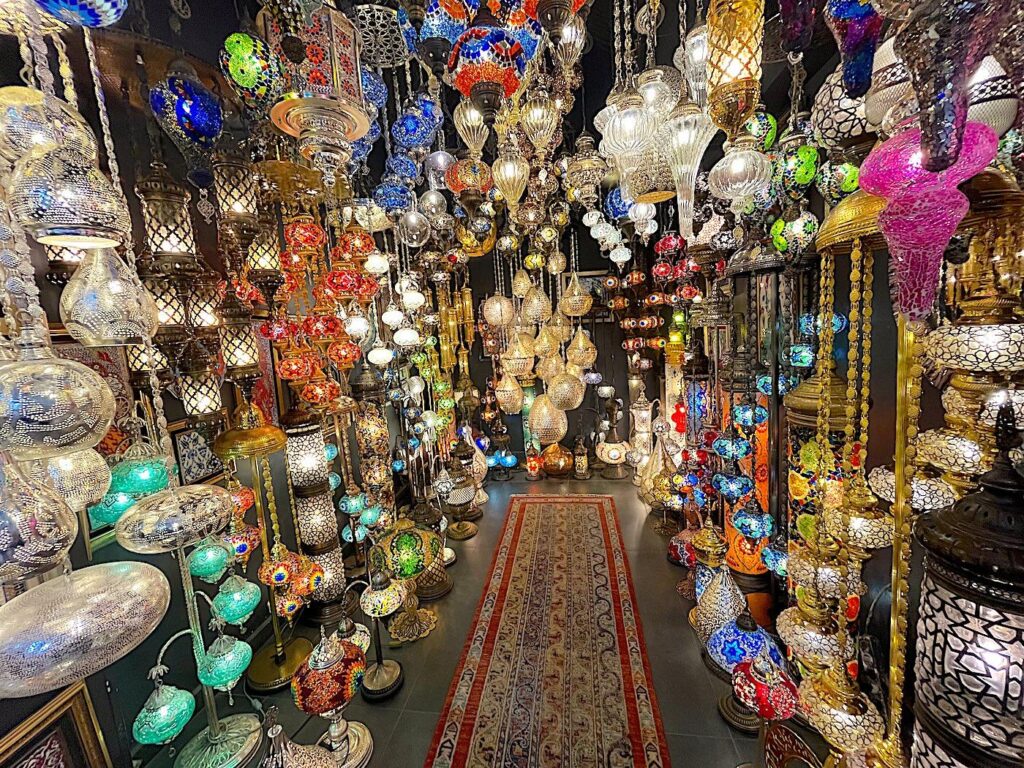
The Grand Bazaar’s most distinctive feature is its covered structure, comprising over 60 streets and over 4,000 shops estimated to cover an area of approximately 30,700 square metres. Its architecture blends Ottoman and traditional Turkish styles with vaulted ceilings, arched passageways, and decorative tilework. The bazaar is organised into sections based on the type of goods sold, creating specialised areas for jewellery, carpets, textiles, spices, and ceramics. The atmosphere is vibrant and bustling, with vendors displaying their wares and engaging in lively bargaining. The bazaar’s historical significance is further enhanced by its traditional hans, or caravanserais, which were once used as lodging and storage for travelling merchants.
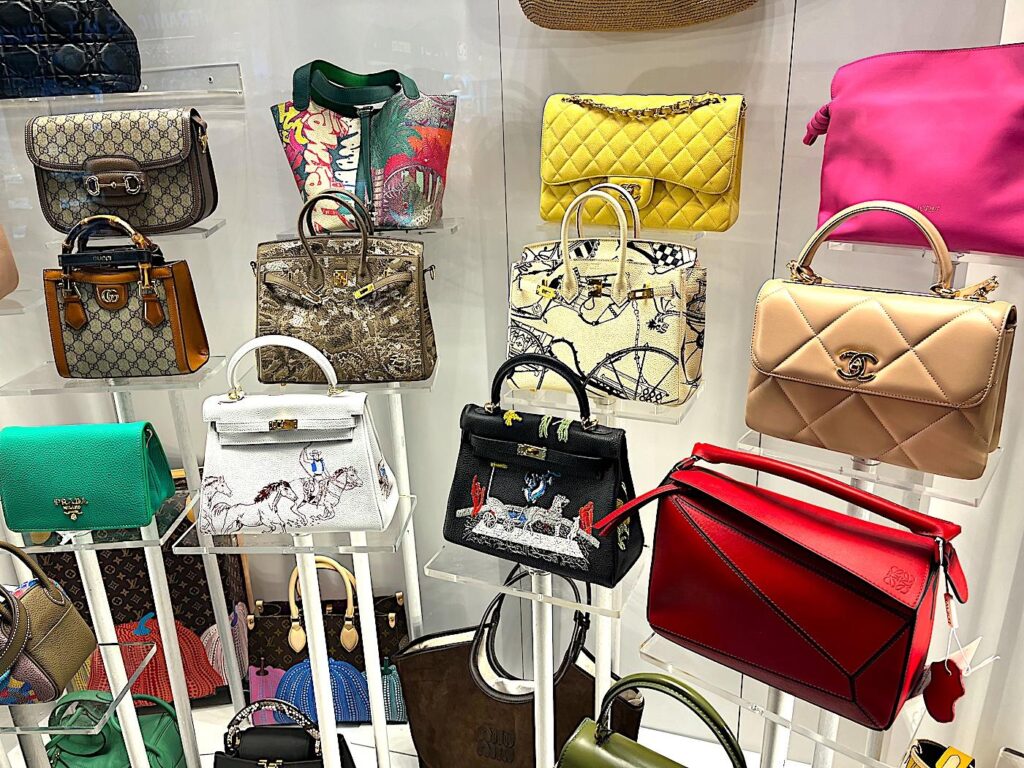
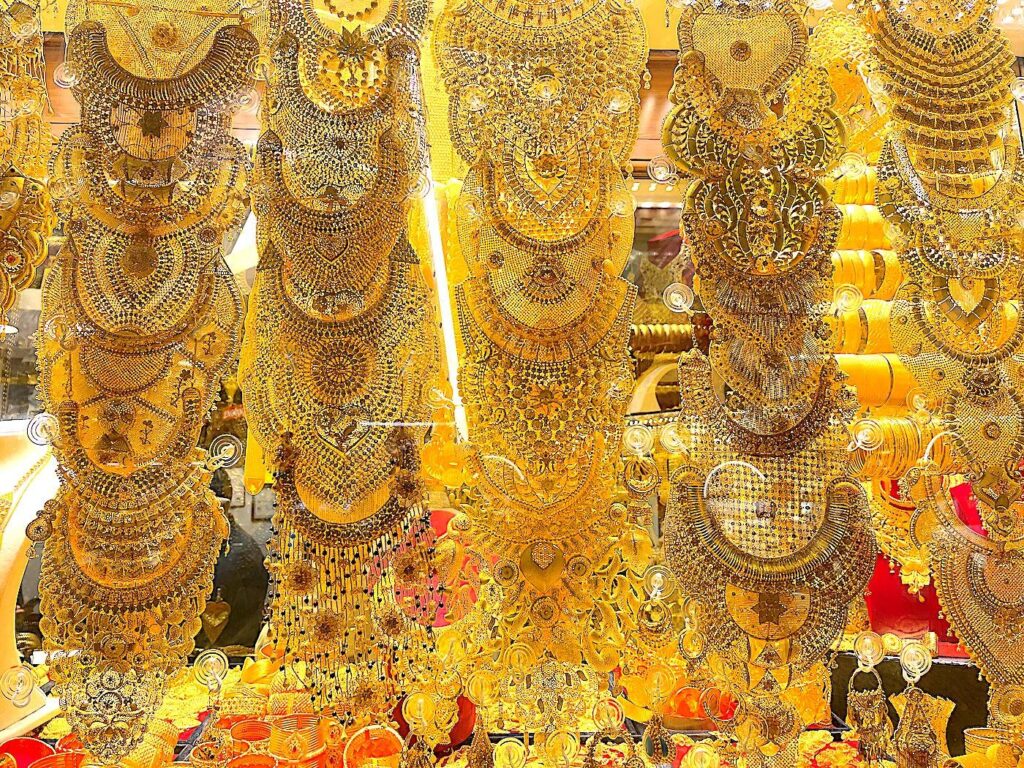
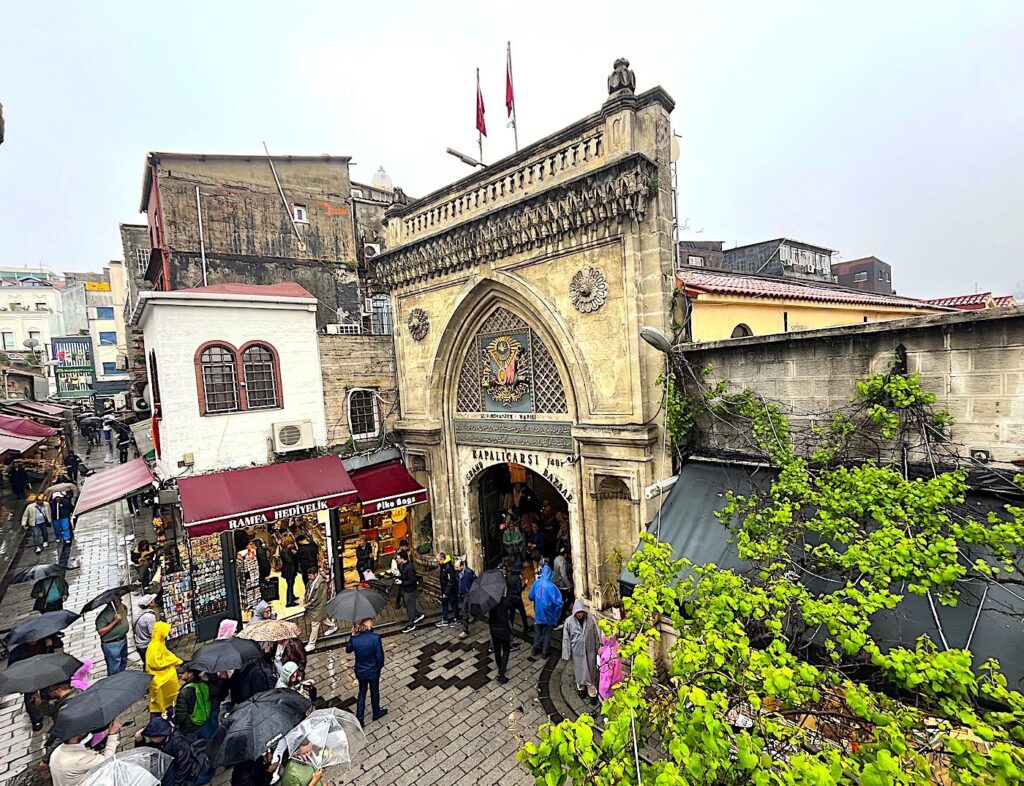
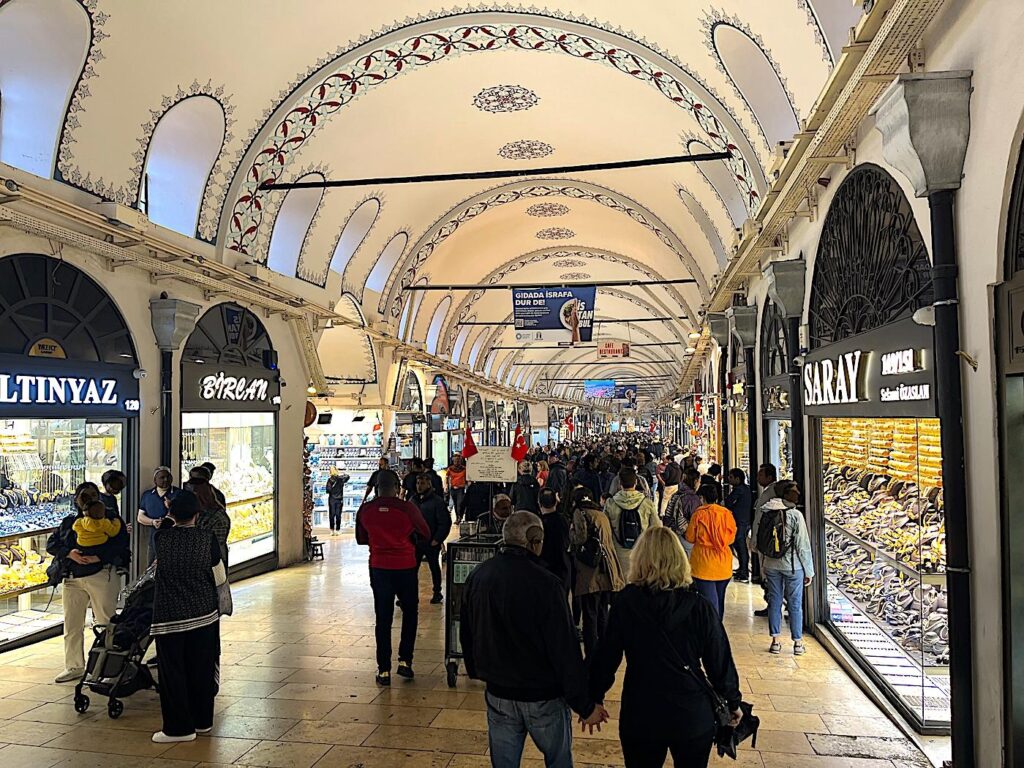
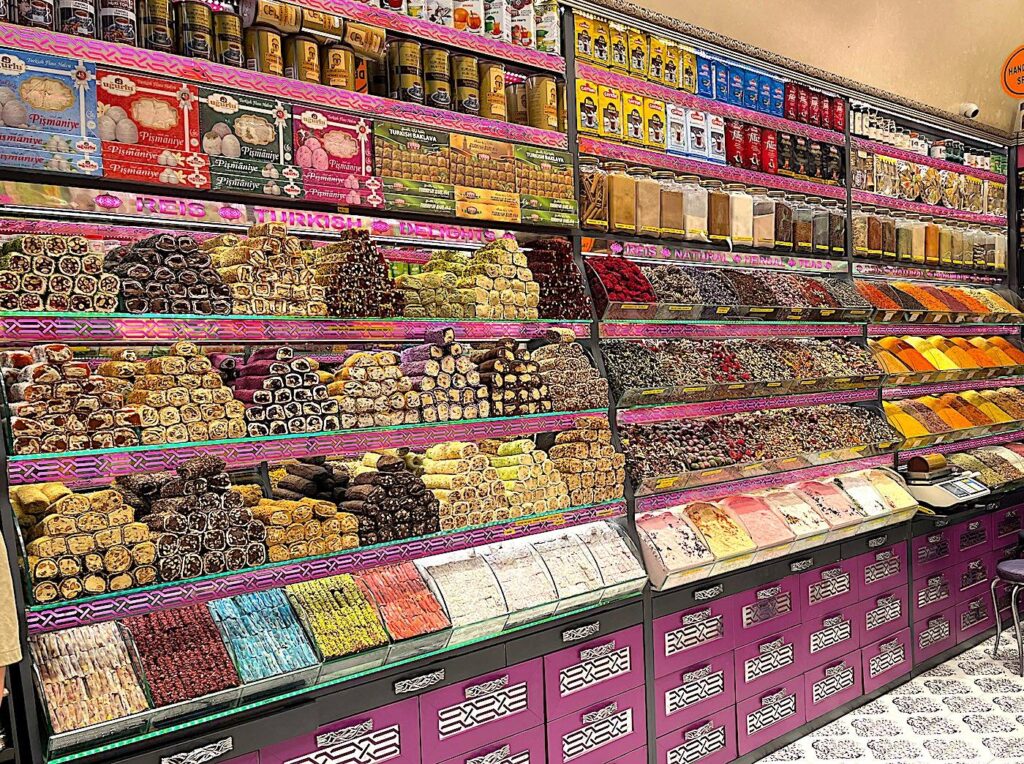
The Grand Bazaar offers a diverse range of shops catering to both locals and tourists. You can find exquisite jewellery, including gold, silver, precious stones, and antique and contemporary carpets, kilims, and textiles. Leather goods, ceramics, spices, and Turkish Delight are popular. Additionally, shops are selling traditional Turkish clothing, souvenirs, and handicrafts. For entry, the Grand Bazaar has numerous gates, each leading into its maze-like interior. However, the most commonly used and easily recognisable entrances are the Beyazıt Gate, near Beyazıt Mosque (to the west of the bazaar), and the Nuruosmaniye Gate, near Nuruosmaniye Mosque (to the east of the bazaar). Entering from these gates provides a convenient starting point for exploring the bazaar’s vast and captivating world.
The Spice Bazaar – Spices, Dried Fruits & Nuts, Teas, Souvenirs
Location: Mısır Çarşısı, Rüstem Paşa, 34116 Fatih/İstanbul. The official GoTürkiye website. Opening Hours: Daily: 08:00 – 19:00, some shops may have different hours, closed public/religious holidays. Entrance Fee: Free to enter.
The Spice Bazaar (Mısır Çarşısı, meaning “Egyptian Bazaar” in Turkish) is a sensory explosion, a vibrant marketplace overflowing with the intoxicating aromas of exotic spices, dried fruits, nuts, and Turkish delights. It’s also a feast for the eyes, with colourful mounds of saffron, turmeric, chilli peppers, and countless other spices piled high in ornate displays.
Beyond spices, you’ll find many a variety of goods, including herbal teas, essential oils, traditional Turkish sweets, nuts, dried fruits, coffee, and souvenirs. The Spice Bazaar offers a glimpse into the heart of Istanbul’s culinary heritage and its historical role as a key trading post on the spice route. The atmosphere is lively and bustling, with vendors eager to share their knowledge of the products and offer samples. It’s a place to immerse yourself in an ancient Turkish market’s sights, sounds, and smells.
The Spice Bazaar’s current structure was completed in 1660. It was built on a former Byzantine spice market site and was initially connected to the Yeni Mosque, with the rent from the shops used to help fund the mosque’s upkeep. Its name, “Egyptian Bazaar,” likely comes from the fact that many spices and goods sold there were transported from Egypt.
Arasta Bazaar – Turkish Souvenirs
Location: Arasta Çarşısı, Sultan Ahmet, Mimar Mehmet Ağa Cd. No:2, 34122 Fatih/İstanbul. The official GoTürkiye website. Opening Hours: Daily: 09:00 – 19:00. Entrance Fee: Free to enter.
The Arasta Bazaar, nestled behind the Blue Mosque in the Sultanahmet district of Istanbul, offers a more relaxed and intimate shopping experience than the bustling Grand Bazaar. With its single, relatively short street lined with shops, this charming bazaar evokes a sense of historical charm and tranquillity. It’s a comfortable place to browse for Turkish crafts, textiles, ceramics, carpets, and souvenirs without the overwhelming crowds and pressure of the more extensive bazaars. You’ll find handcrafted items, often with unique designs and traditional motifs. The atmosphere is friendly and welcoming, with vendors who are passionate about their products and happy to share their knowledge.
The Arasta Bazaar’s history is intertwined with the nearby Blue Mosque, which was originally part of the mosque complex. The shops were built in the 17th century, and their rents were used to support the mosque. The term “arasta” refers to a row of shops, often associated with a mosque or other public building.
While considerably smaller than the Grand Bazaar or Spice Bazaar, the Arasta Bazaar still houses a decent number of shops, offering a diverse selection of goods. Its location in the heart of Sultanahmet makes it easily accessible and convenient to tourists visiting the Blue Mosque, Hagia Sophia, and other major attractions. As such, being more of a tourist destination, prices can be higher, and it is more likely to attract large tour groups.
Beyazit Book Bazaar – Books & Printed Materials
Location: Sahaflar Çarşısı, Molla Fenari, Medrese Çk. No:4, 34120 Fatih/İstanbul. No known official website. Opening Hours: Monday-Saturday: 07:00 – 20:00, Sunday: 10:00 – 18:00 (some stalls do not open Sundays), closed for Ramazan Bayramı and Kurban Bayramı. Entrance Fee: Free to enter.
The Sahaflar Çarşısı (Beyazit Book Bazaar) is a haven for book lovers, a charming market situated in the heart of Istanbul, near the Beyazit Mosque and the Grand Bazaar. This open-air market is a treasure trove of new and used books, manuscripts, maps, and other printed materials. Stalls are piled high with books in various languages, from classic literature and historical texts to contemporary novels and academic works.
You’ll also find rare and antique books, beautifully illuminated manuscripts and historical maps. The Sahaflar Çarşısı is a place where you can discover hidden literary gems and experience the unique atmosphere of a traditional book market. The air is filled with the scent of old paper, and the market’s location near the university and other educational institutions has contributed to its vibrant intellectual atmosphere.
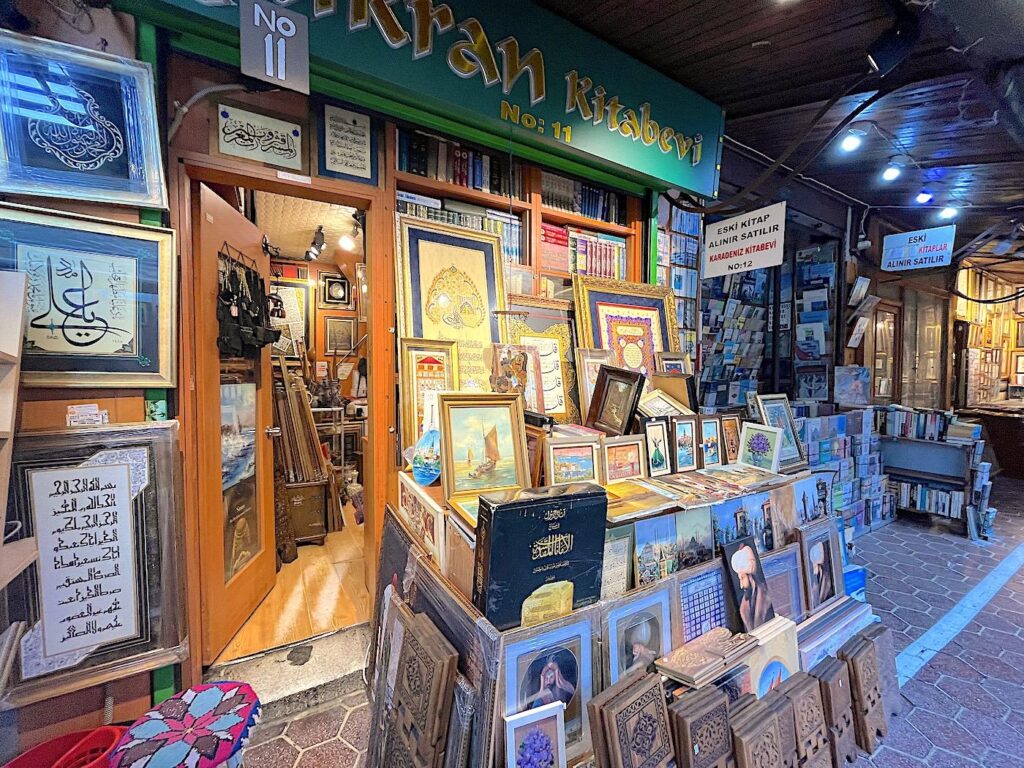
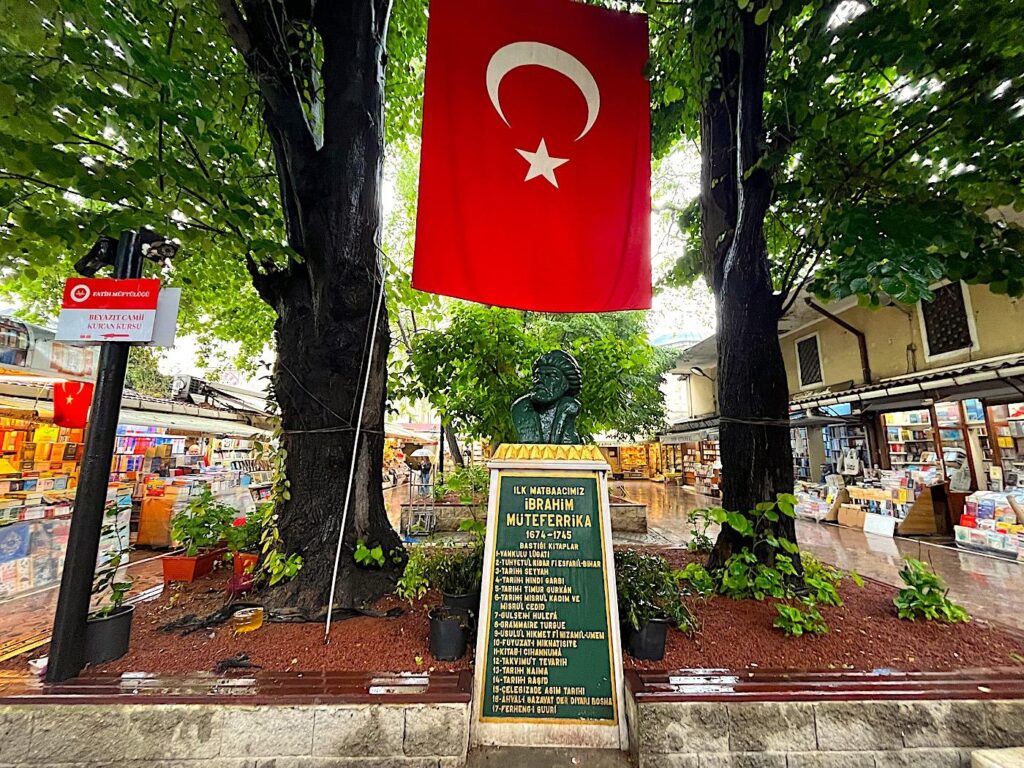
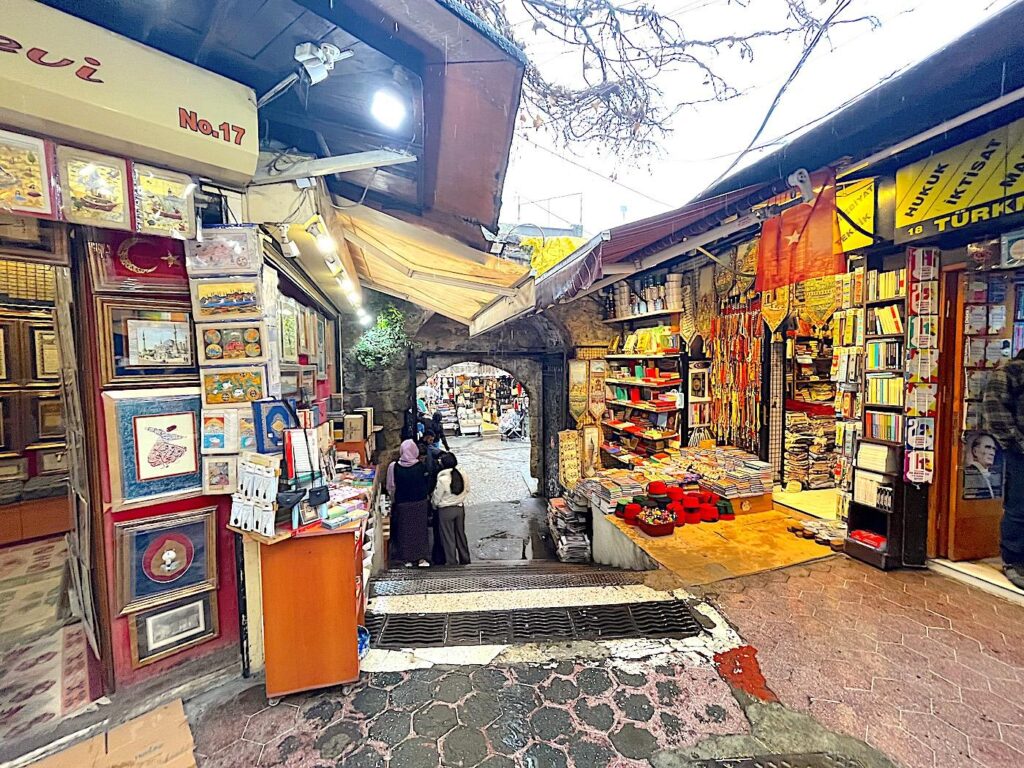
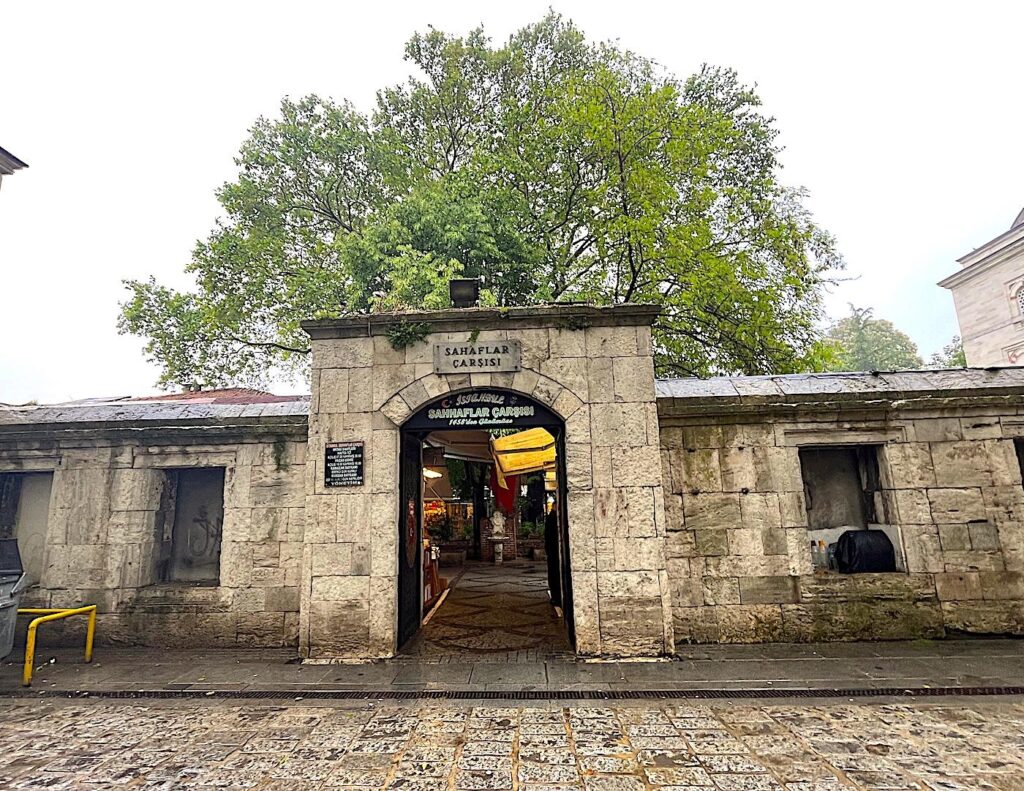
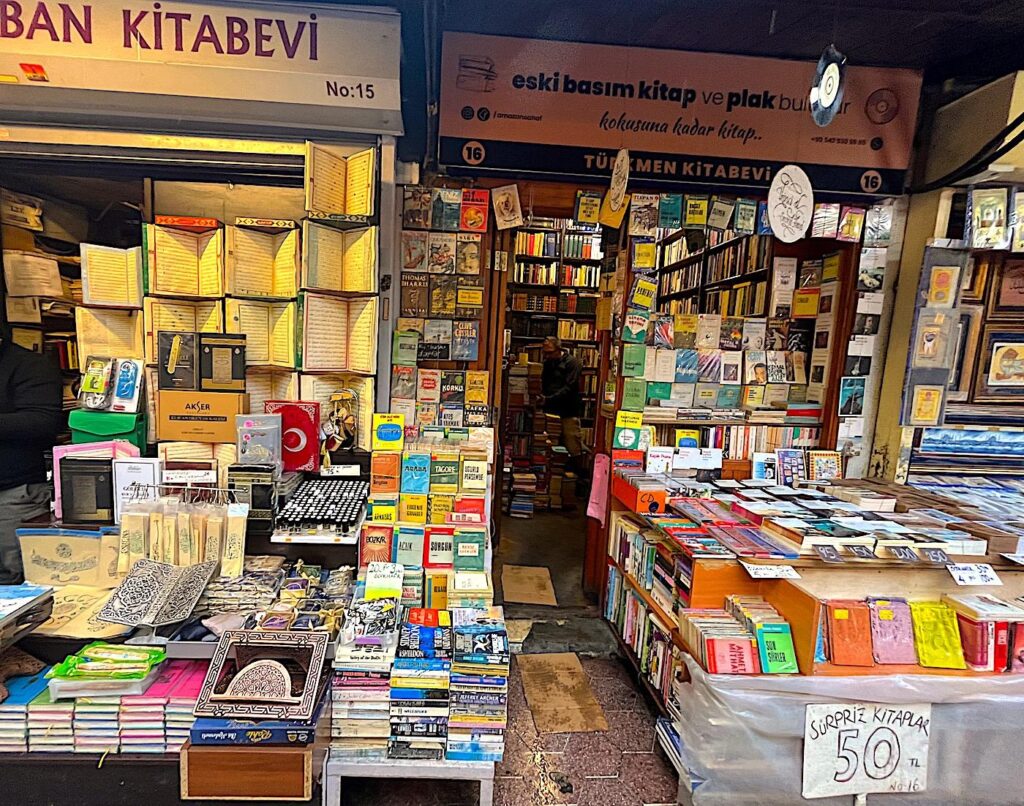
The history of the Sahaflar Çarşısı dates back to the Ottoman era, although the market has undergone significant evolution over time. During the 15th century, when Fatih Sultan Mehmed built the Grand Bazaar, he allocated a space for bookshops. These bookshops operated there until 1887, when an earthquake prompted them to relocate to their current location, near Bayezit Square. “Sahaflar” comes from the Arabic word “sahhaf,” meaning bookseller. It has long been a centre for bookselling and publishing in Istanbul, attracting scholars, writers, and book collectors.
The Sahaflar Çarşısı isn’t a large market area; it’s more of a collection of stalls and small shops clustered together, an open-air area, not a covered bazaar. The bazaar has two entrances: one is located next to Beyazıt Mosque, and the other opens onto the road leading to the Grand Bazaar. A bust of İbrahim Müteferrika, the first Turkish printer, was placed here in 1981. There is also a tombstone belonging to Hasan Efendi from Sahaf Crimea, which was brought from Laleli and is located in the middle of the bazaar.
Mahmutpasha Bazaar – Diverse Market
Location: Mahmutpaşa Çarşısı, Taya Hatun, Tarakçılar Cd. No:65, 34120 Fatih/İstanbul. No known official website. Opening Hours: Mondays – Saturday 10:00 – 22:00 (shop times vary), closed Sundays. Entrance Fee: Free to enter.
Mahmutpaşa Bazaar, nestled between the Grand Bazaar and the Spice Bazaar in Istanbul, is a bustling shopping street known for its diverse offerings and affordable prices. It’s a place where locals and tourists alike can find a wide range of goods, from textiles and clothing to spices, jewellery, and household items. A lively street lined with small shops, traditional Turkish clothing, fabrics by the metre, shoes, bags, accessories, and various souvenirs. Mahmutpaşa Bazaar has a long history, dating back to the Ottoman era. It’s named after the nearby Mahmut Pasha Mosque, which the Ottoman Grand Vizier Mahmud Pasha commissioned in the 15th century. Over the centuries, the bazaar has evolved, becoming an Istanbul trade and commerce centre.
Feriköy Antique Market – Weekly Antiques & Collectables Market
Location: Feriköy Antika Pazarı, Cumhuriyet, Semt Pazarı No:8, 34380 Şişli/İstanbul. The official website link (Turkish only). Opening Hours: Sunday only: 09:00 – 18:00. Entrance Fee: Free to enter.
The Feriköy Antika Pazarı, the Feriköy Antique Sunday Market, also known as the Bomonti Antique Market, is the largest flea market in Türkiye and a treasure hunter’s paradise. In this vibrant market, you can rummage through a fascinating collection of vintage and antique items. Picture stalls overflowing with everything imaginable, from vintage furniture and antique clocks to old records, retro clothing, vintage toys, coins, stamps, and countless other collectables.
It’s a place to discover hidden gems, unique artefacts, and pieces of Istanbul’s past. The atmosphere is lively and bustling, with vendors eager to share the stories behind their wares and bargain with customers. Whether you’re a serious collector or enjoy browsing for interesting finds, the Feriköy Antique Market offers a delightful and unpredictable shopping experience.
While the exact origins of the Feriköy Antique Market are challenging to pinpoint, it has become a well-established and popular fixture in Istanbul’s antique scene. It’s not a formally organised structure like the Grand Bazaar but rather a collection of vendors who set up their stalls in an open-air space. The market size and the number of vendors present vary slightly, depending on the weather and time of year, but it generally hosts a significant number of stalls. It’s an outside market covered with a canopy. Located in the Feriköy neighbourhood of Istanbul, in the Şişli district, it’s a bit off the main tourist track but still accessible by bus or a 900-metre walk from Osmanbey Metro (M2).
The same site hosts the Feriköy organic market on Saturdays, provided with the contributions of the Buğday Association and Şişli Municipality. It is one of the principal organic markets in Istanbul, where you can find a wide variety of certified products from over 800 farms throughout Türkiye.
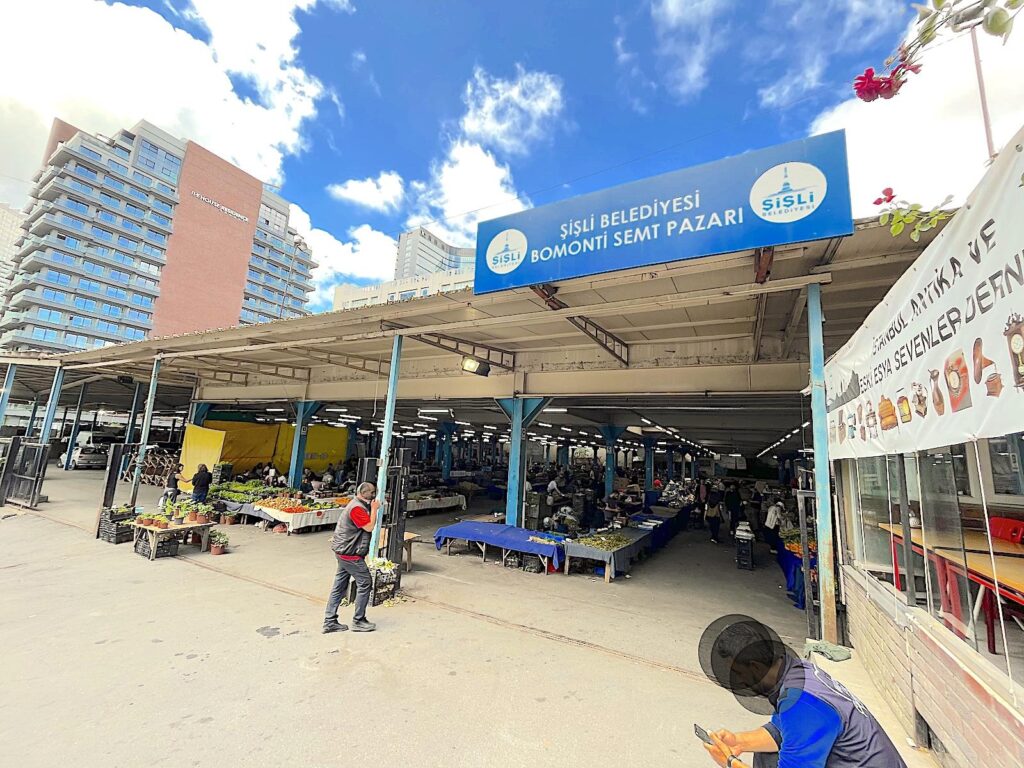
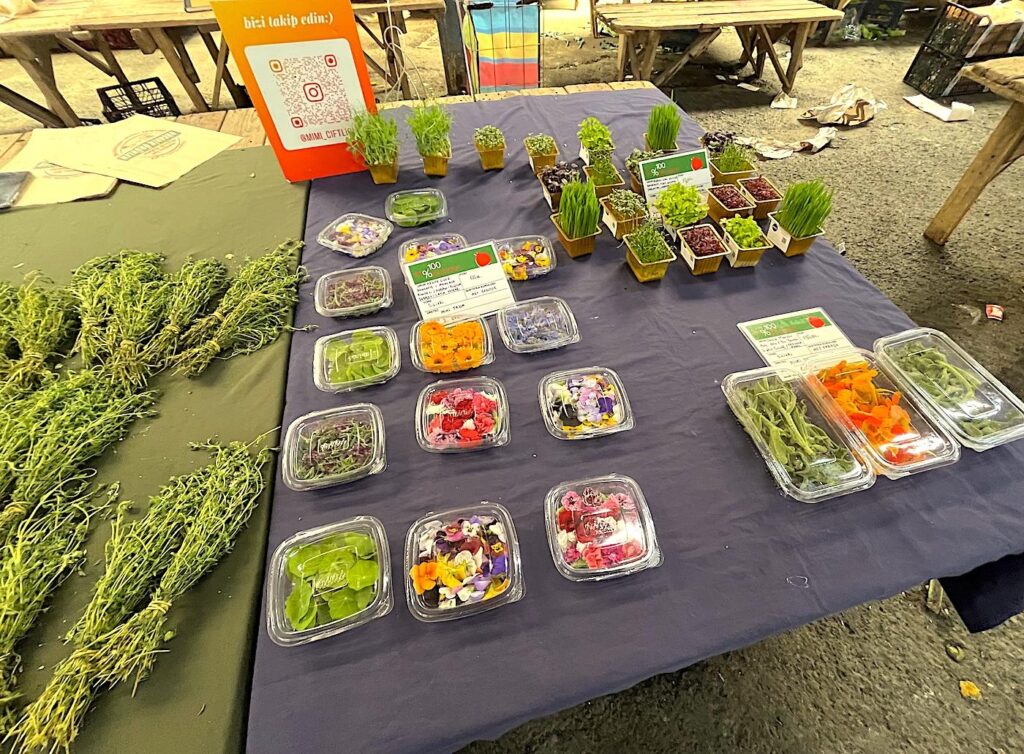
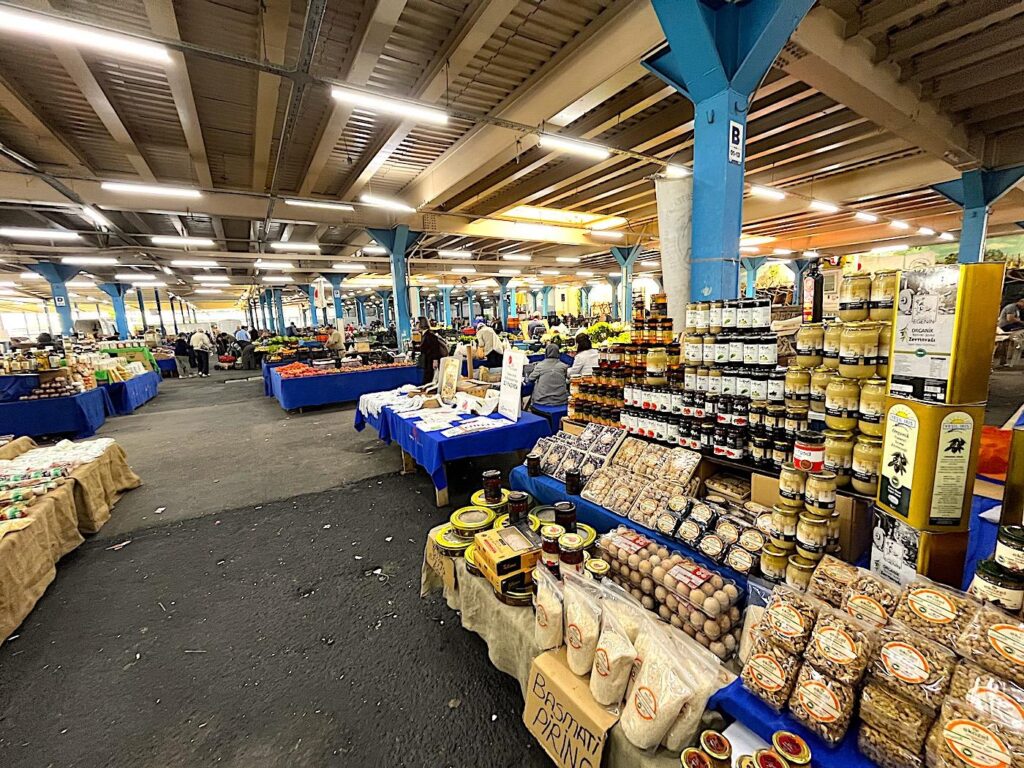
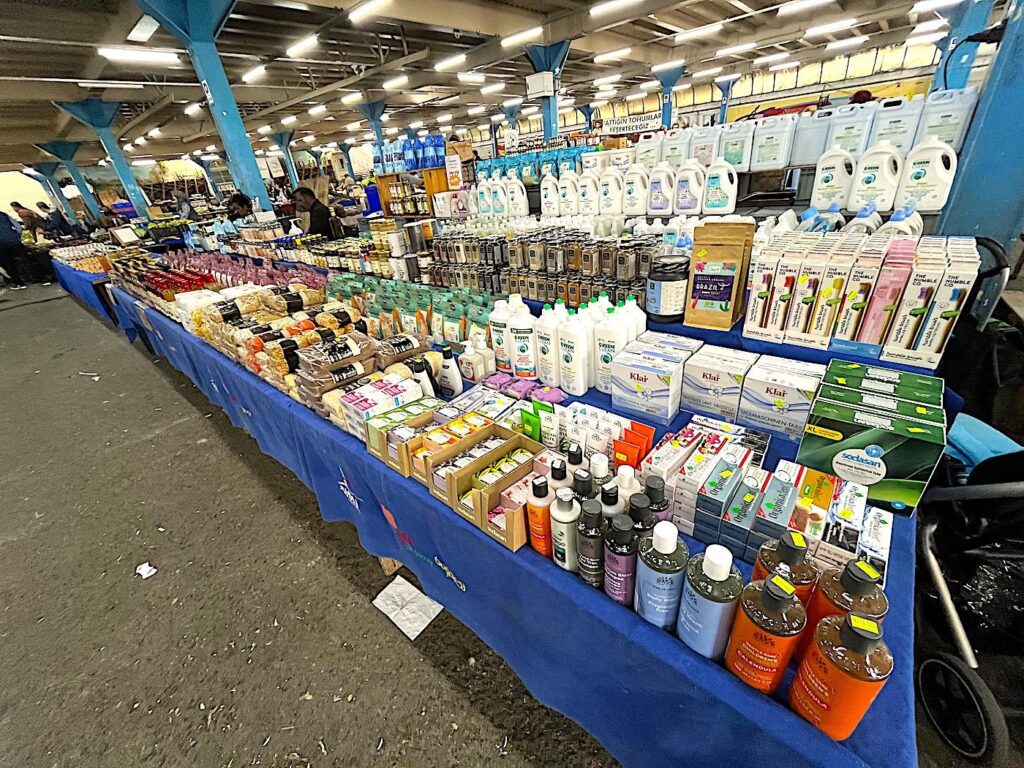
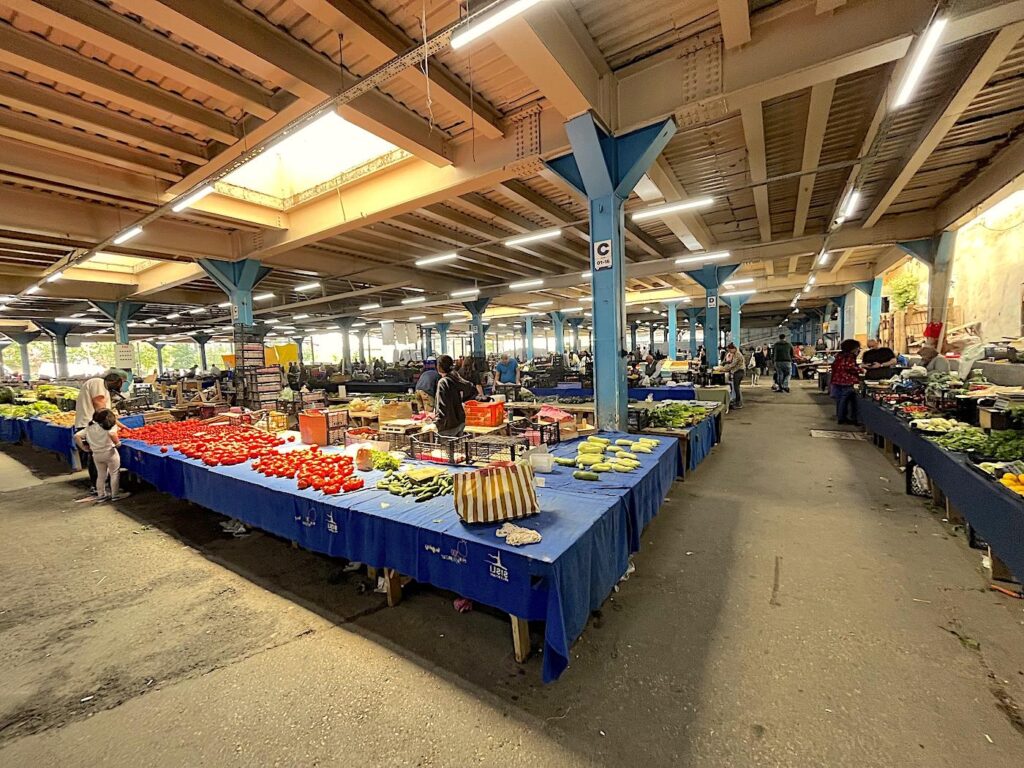
Ulus Society Market – Weekly Clothing & Accessories Market
Location: Ulus Sosyete Pazarı, Levazım, Çayır Sk. No:1, 34340 Beşiktaş/İstanbul. No known official website. Opening Hours: Thursdays only: 08:00 – 18:00. Entrance Fee: Free to enter.
The Ulus Sosyete Pazarı (Ulus Society Market), also known as the Ortaköy Sosyete Pazarı, set up on Thursdays, is a popular open-air market known for its trendy clothing, shoes, bags, and accessories. It’s a favourite among fashion-conscious locals and expats looking for stylish pieces at affordable prices.
The market stalls are well spaced, not crowded (much to the dismay of traders) and the market area is clean, making a comfortable shopping experience. Stalls overflow with clothing, from dresses and tops to jeans, jackets, and shoes. You’ll also find many bags, belts, scarves, and other accessories to complete your look. While some items may be branded or inspired by designer styles, the Ulus Market is primarily known for its budget-friendly prices.

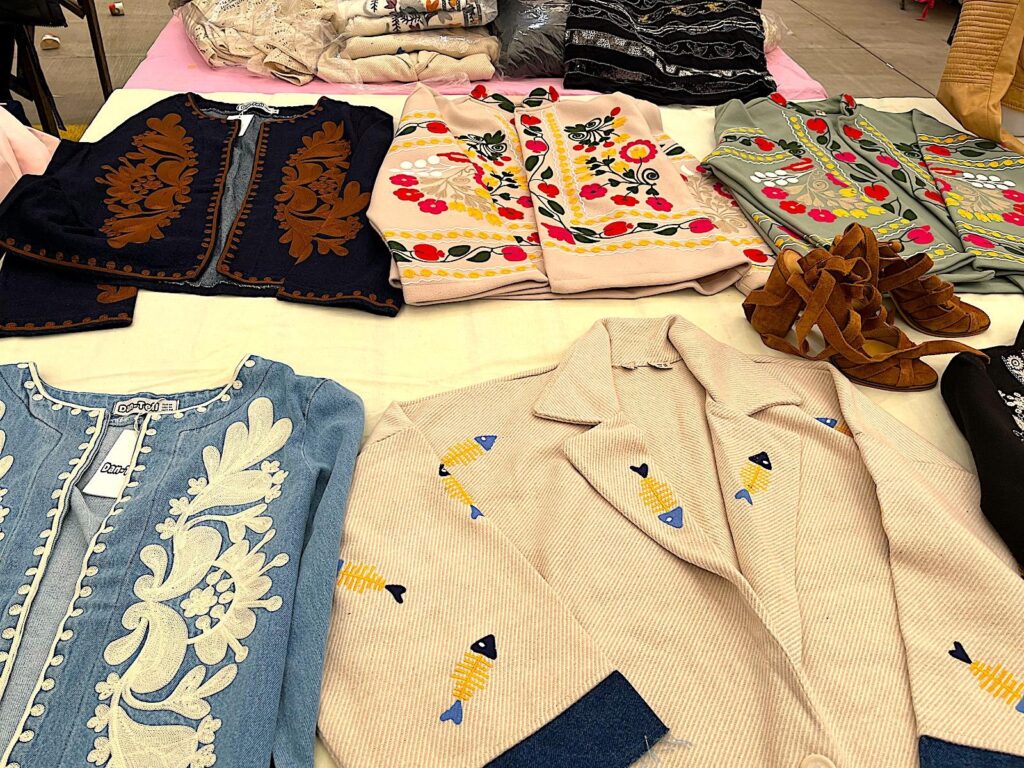
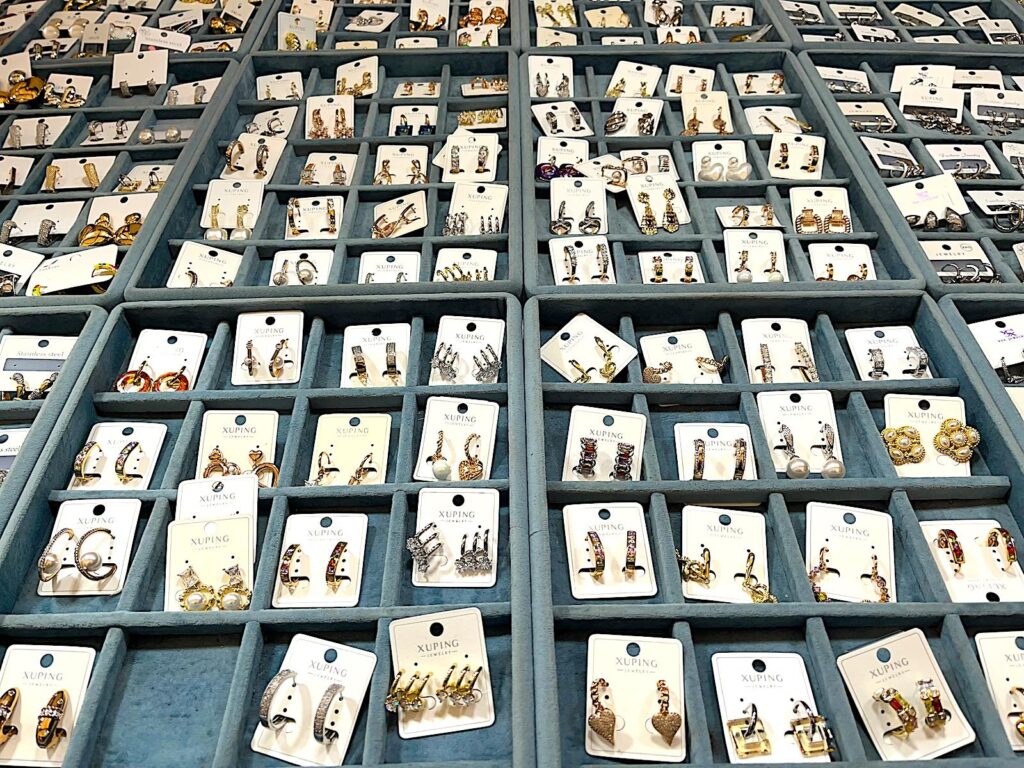
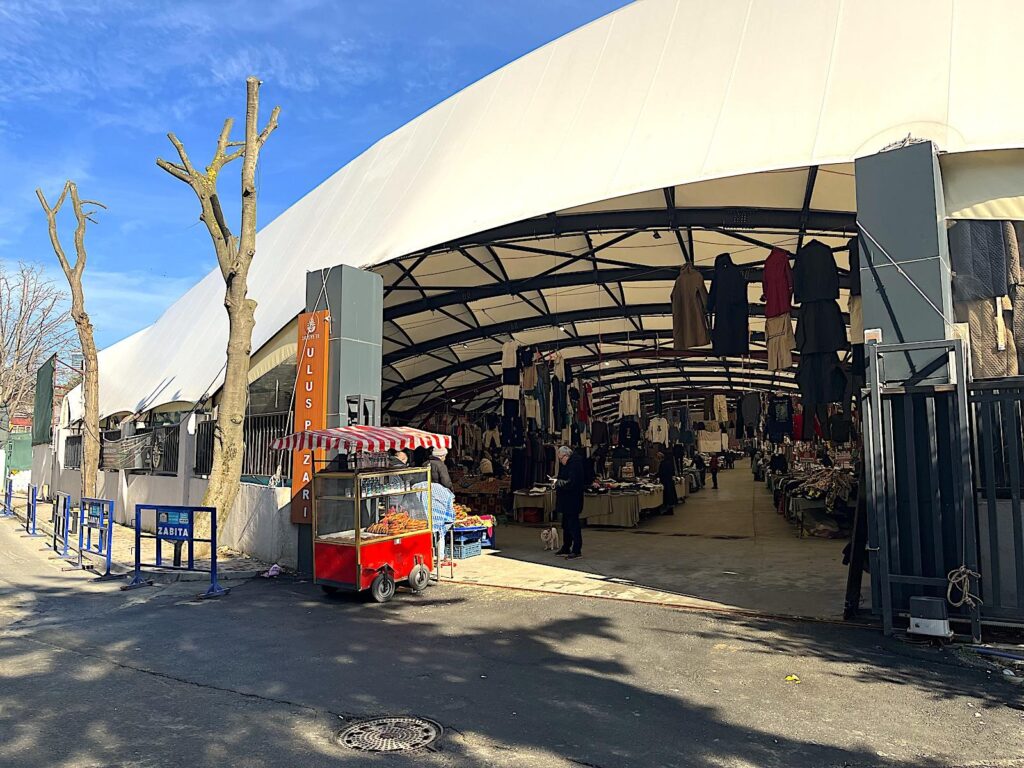
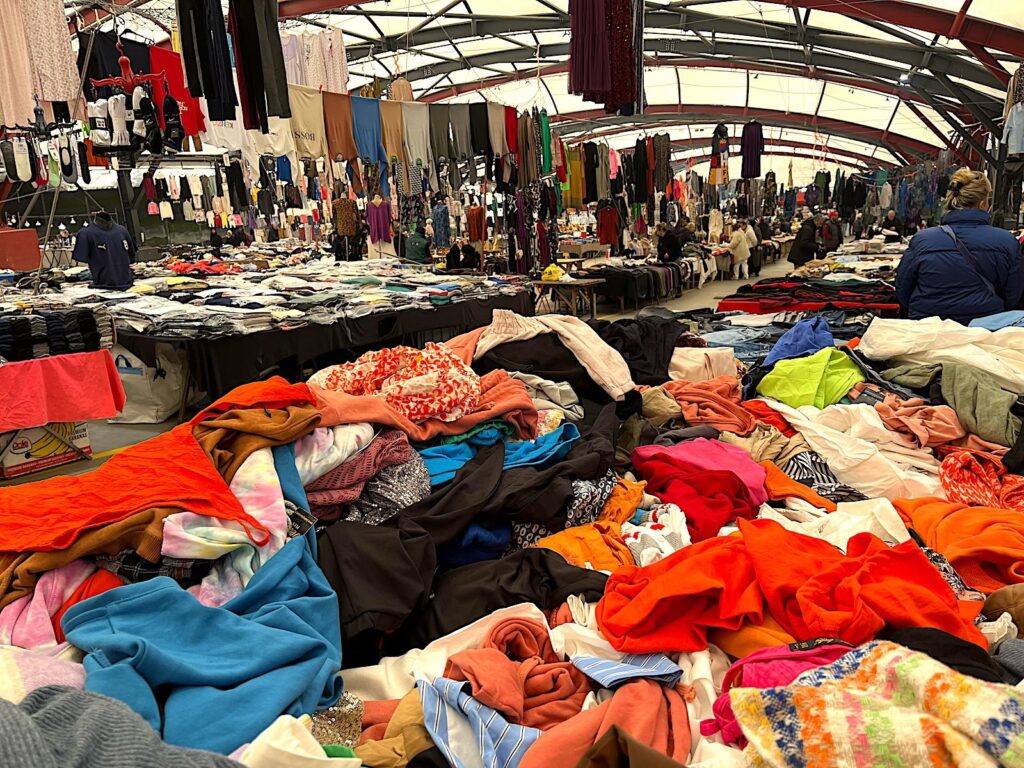
Türkiye is a significant textile and clothing producer, and these markets provide shoppers the opportunity to purchase products that are export overruns or with minor defects at extremely reasonable prices. While there are also blatant copies of famous brands, some clothing is made in factories, producing high-quality products with similar specifications.
Expect to see heaps of clothes on tables with women wading through the different designs and cuts as the stall keepers yell out the cost of the items in the various piles. If you are willing to take the time, you should be able to find suitable items. The original branded clothing overruns/minor defect items are typically sold with their inside labels cut, and spread randomly across tables to rummage through, while copies generally are packaged neatly or placed on hangers.
On Thursdays, interspersed between the clothing and fashion accessories are some fruit and vegetable, spice, and general food stalls. There is also a stall selling snacks, including Gözleme. The market is also open on Wednesdays, where the focus is on fruit and vegetables, and on Saturdays, where it is focused on organic products.
Fatih Wednesday Market – Diverse Weekly Market
Location: Fatih Çarşamba Pazarı, Zeyrek, Yesarizade Cd., 34083 Fatih/İstanbul. No known official website. Opening Hours: Wednesdays: 09:00 – 19:00 (TBC). Entrance Fee: Free to enter.
Fatih Wednesday Market (Fatih Pazarı), also known as the “Çarşamba Pazarı,” is one of Istanbul’s oldest and largest street markets, held every Wednesday in the historic Fatih district. Dating back to the Ottoman era, this bustling market spreads through the narrow streets around Fatih Mosque, featuring thousands of stalls offering a vast selection of goods.
Shoppers can find everything from fresh fruits and vegetables to clothing, shoes, textiles, household items, and traditional Turkish products at affordable prices. Unlike more modern markets, Fatih Pazarı maintains an authentic and chaotic charm, attracting both local residents and bargain hunters from across the city. With its deep-rooted history, diverse range of products, and lively atmosphere, it remains a key part of Istanbul’s vibrant market culture.
Kadıköy Market – Diverse Bi-Weekly Market
Location: Kadıköy Çarşısı, Hasanpaşa, Uzunçayır Cd., 34722 Kadıköy/İstanbul. No known official website. Opening Hours: Tuesdays & Fridays: 07:00 – 22:00. Entrance Fee: Free to enter.
Kadıköy Tuesday & Friday Market (Kadıköy Salı ve Cuma Pazarı), not to be mixed with Kadıköy’s shopping district, is one of Istanbul’s largest and most well-known open-air markets. It is located to the east of Kadıköy centre, in the Hasanpaşa District, close to Fikirtepe Metrobus line and Acıbadem (M4) Metro Station, on the Asian side of Istanbul.
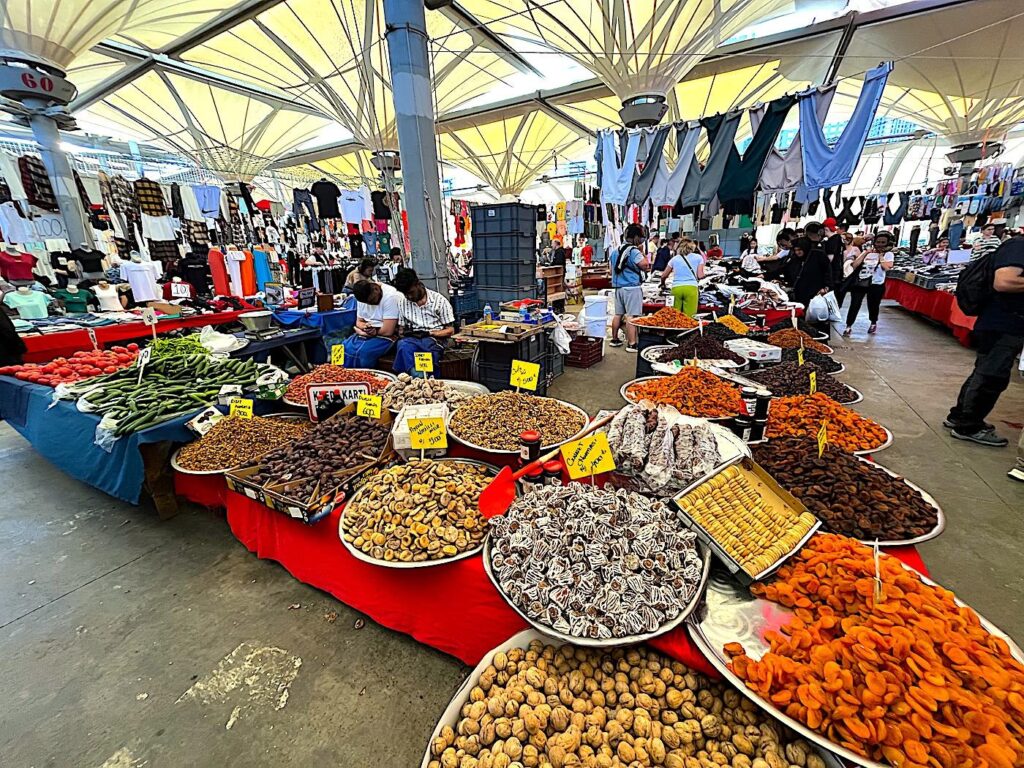
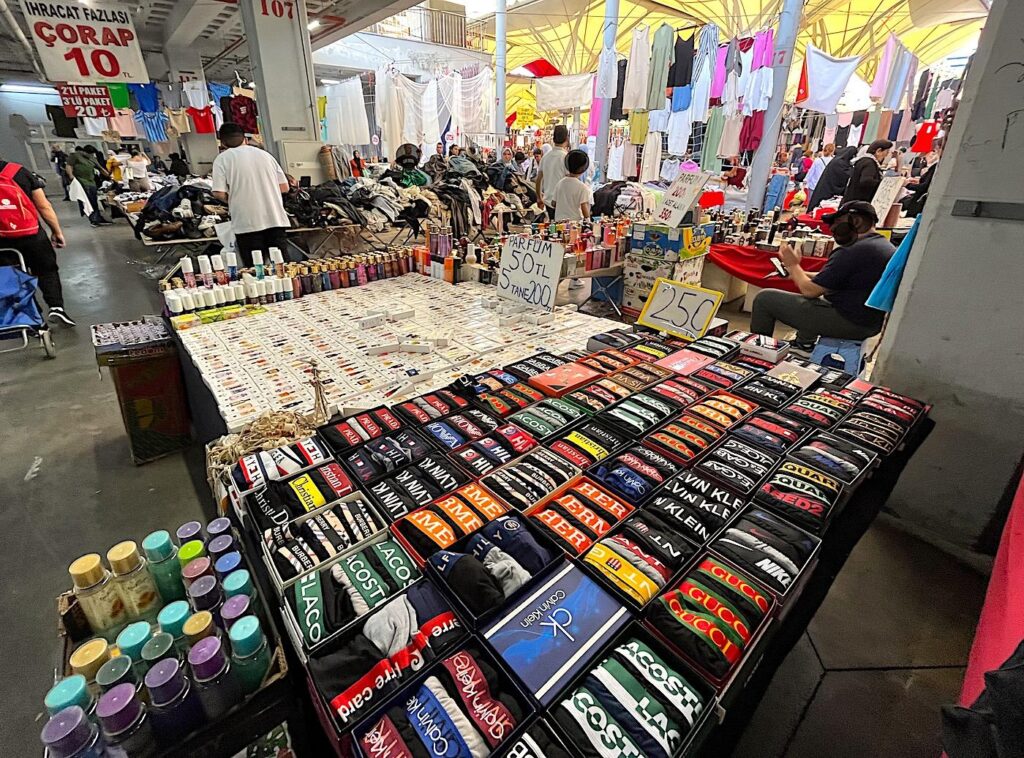
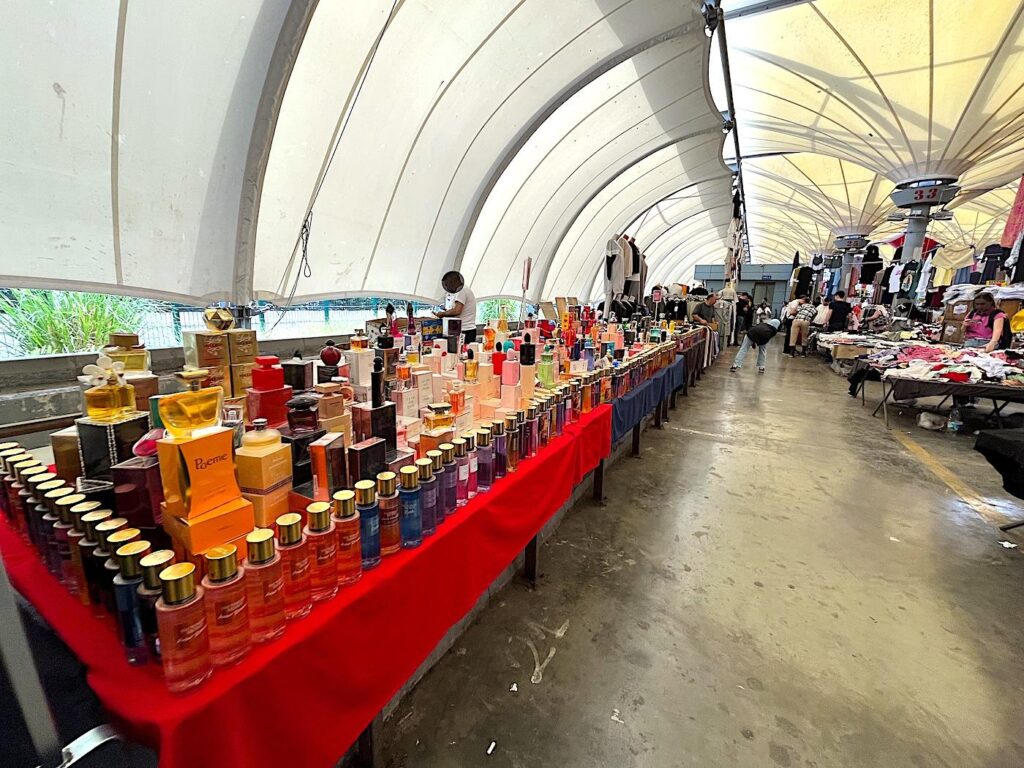
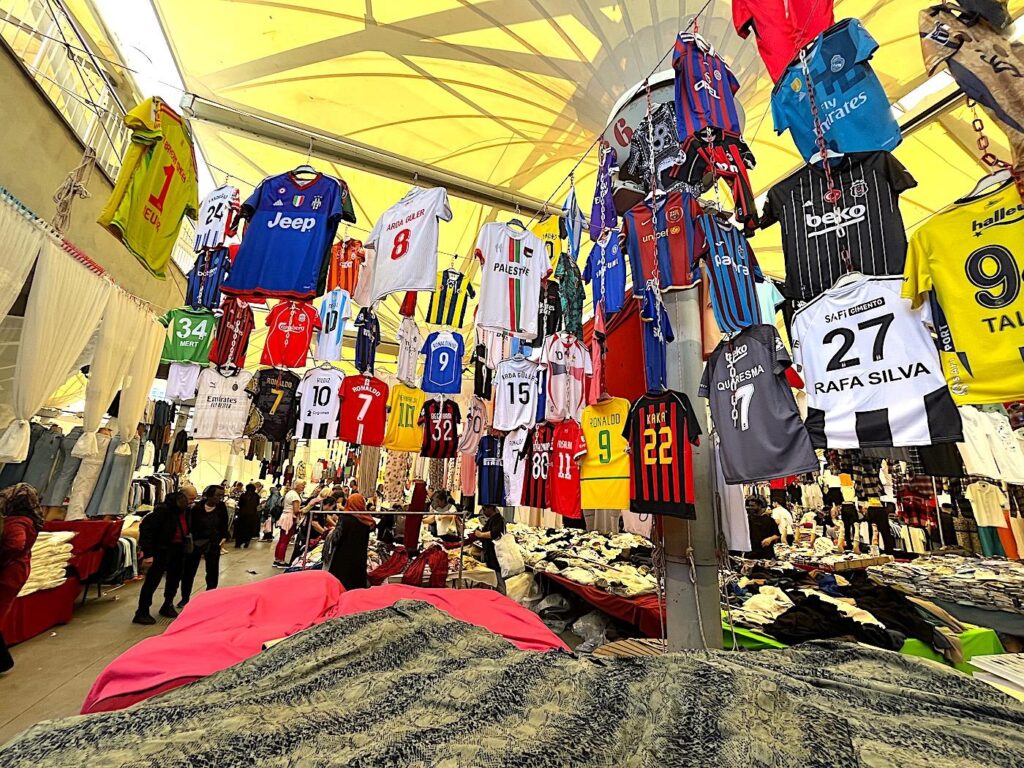

The Tuesday Market (Salı Pazarı) has a long history and is particularly famous for its wide range of products, from fresh fruits and vegetables to clothing, accessories, household goods, and handmade items. In addition to these, visitors can find olives, cheeses, spices, nuts, and fabric materials. The Friday Market (Cuma Pazarı), held in the same location, is primarily known for selling fabrics, textiles, and second-hand (flea market) items, attracting those interested in searching for unique and vintage products. Both markets are extensive, featuring hundreds of stalls and shops, making them among the largest in Istanbul.
Kasımpaşa Inebolu Organic Market – Organic Market
Location: Kasımpaşa Inebolu Organik Pazarı, Camiikebir, Bahriye Cd., 34440 Beyoğlu/İstanbul. The official district website. Opening Hours: Sundays: 06:00 – 16:00. Entrance Fee: Free to enter.
Kasımpaşa İnebolu Organic Market is a unique farmers’ market in Istanbul, known for offering organic and locally sourced products directly from producers in İnebolu, a district in Kastamonu province. With a long-standing tradition of bringing fresh, high-quality goods from the Black Sea region to Istanbul, this market has become a favourite among those seeking natural and healthy products. It is small compared to other major markets in the city, consisting of dozens of stalls rather than hundreds. Still, it is highly valued for its authenticity and high-quality offerings. Located in Kasımpaşa, near the Haliç (Golden Horn), it is a gathering place for residents and those looking for organic alternatives to supermarket goods.
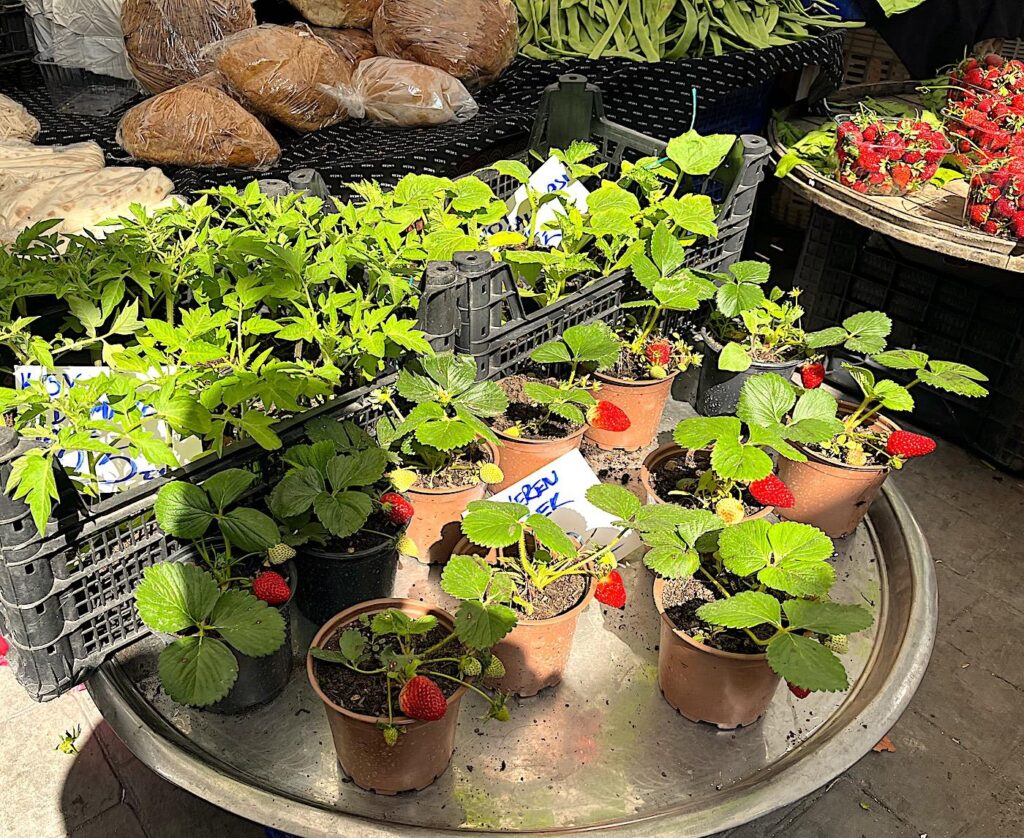
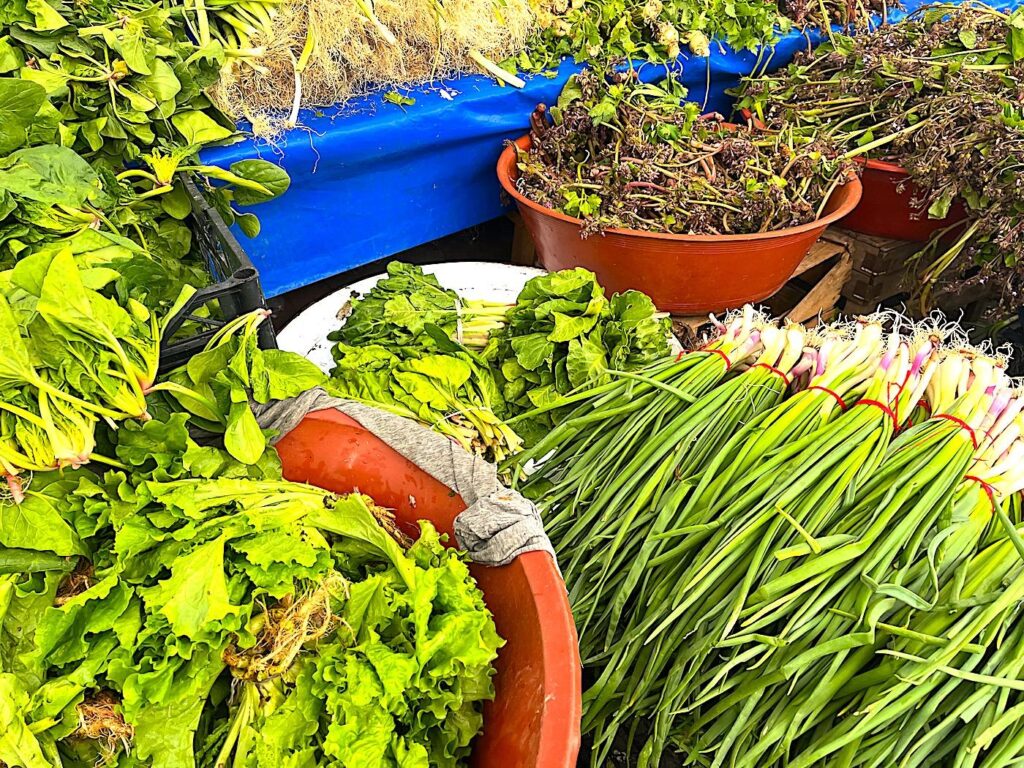
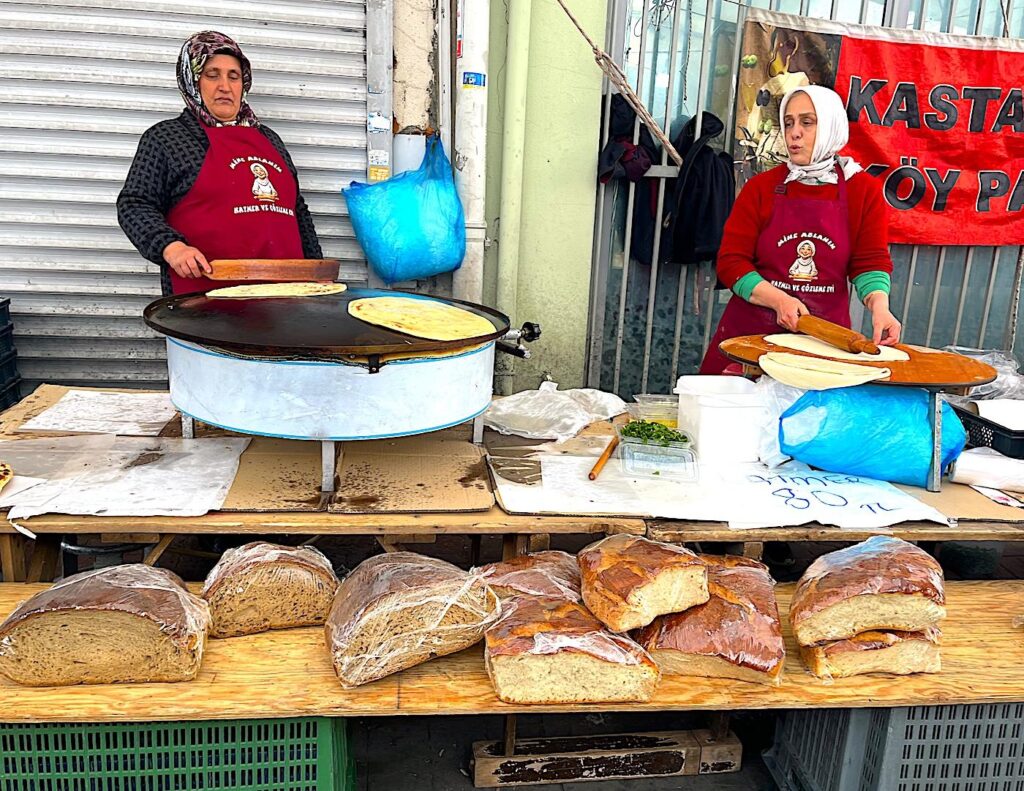
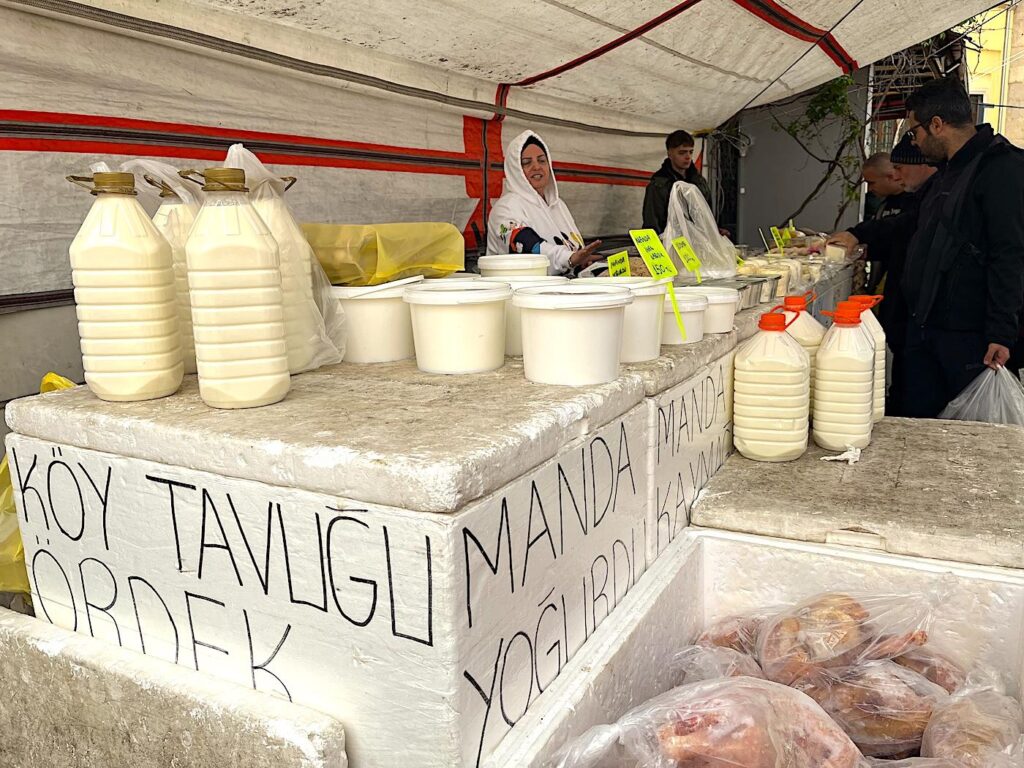
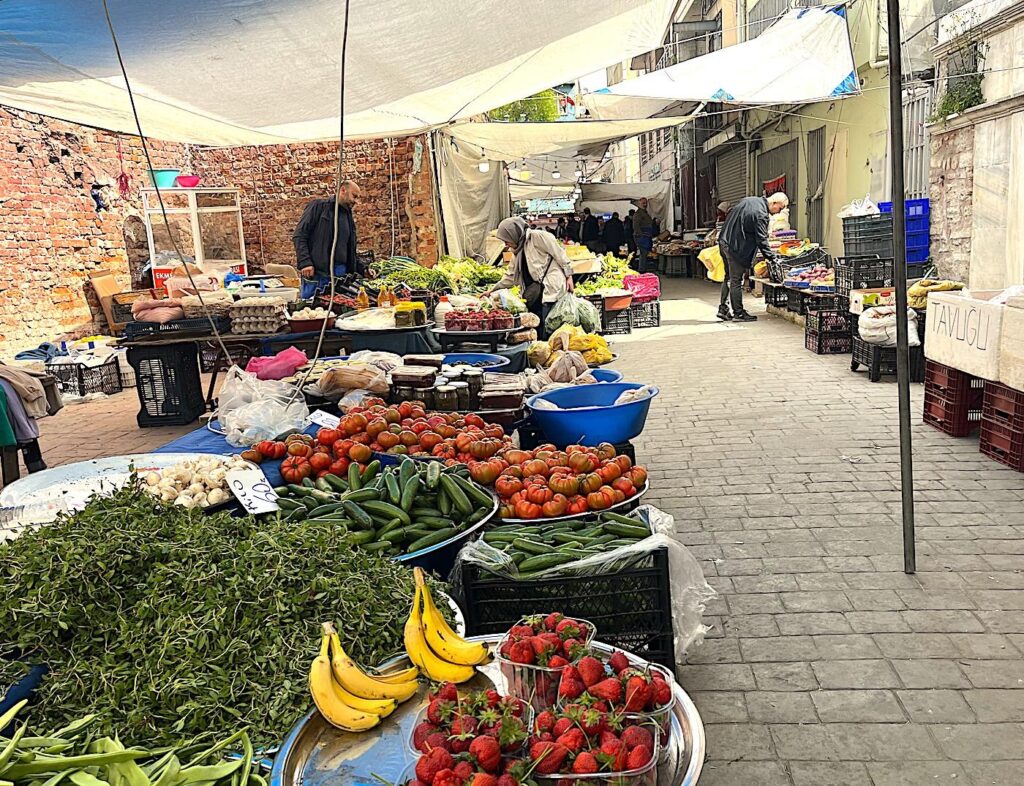
The market operates only on Sundays, opening early in the morning and running until the afternoon, offering a wide range of fresh produce, including seasonal fruits and vegetables, dairy products, honey, homemade jams, traditional Black Sea cheeses, dried legumes, and artisanal bread. Many products are grown using conventional, chemical-free farming methods, making it a go-to destination for organic food enthusiasts. The market’s small size and limited operating hours contribute to its exclusive and community-focused atmosphere, where customers can interact directly with farmers and producers.
Other Notable Istanbul Markets
Yeşilköy Market – Diverse Weekly Market
Location: Yeşilköy Pazarı, Yeşilköy Pazarı, Yeşilköy, 34149 Bakırköy/İstanbul. No known official website. Opening Hours: Wednesdays: 07:00 – 19:00. Entrance Fee: Free to enter.
Yeşilköy Pazarı is one of Istanbul’s most upscale and well-organised open-air markets, held every Wednesday in the Yeşilköy neighbourhood of Bakırköy in the far west of Istanbul. The spacious layout of the market features around 2,000 stalls offering a wide variety of goods, including fresh fruits and vegetables, organic products, gourmet delicacies, textiles, clothing, accessories, cosmetics, and household items. Unlike many other street markets in Istanbul, Yeşilköy Pazarı is renowned for its cleaner and more orderly environment, attracting a more affluent local clientele. It is a favourite spot for those looking for designer brands, high-end fabrics, and imported goods at discounted prices.
Tips for Shopping in Istanbul Markets
General Tips
Navigating Istanbul’s vibrant markets is an adventure, a sensory feast of sights, sounds, and smells. To make the most of your market experience, preparation is key. Wear comfortable shoes, as you’ll be doing a lot of walking, and dress modestly, especially if you plan to visit nearby religious sites. Bring cash, as it’s the preferred payment method in markets, and have small denominations handy for easier bargaining.
Learning basic Turkish phrases, like greetings and numbers, can enhance your interactions with vendors. Bargaining is expected in most markets, so be prepared to haggle respectfully. Start with a lower offer than the asking price and be willing to negotiate. Don’t be afraid to walk away; vendors often call you back for a better price. Shop around before purchasing to compare prices and quality at different stalls.
Immersion is the best way to experience Istanbul’s markets truly. Take your time to wander through the labyrinthine alleys and soak up the atmosphere. Don’t be afraid to get lost (intentionally!), you might stumble upon hidden gems and unique finds. Be aware of your surroundings and continuously monitor your belongings in crowded areas.
Sample local treats offered by vendors; they are a great way to try new flavours and experience local cuisine. Take a break and enjoy a glass of Turkish tea or coffee with a vendor, it’s a chance to relax, chat, and learn more about the local culture. Ask vendors for recommendations on other markets, restaurants, or places to visit. They often have valuable insights and can point you in the right direction.
Finally, remember that visiting Istanbul’s markets is more than just shopping; it’s about experiencing the vibrant culture and interacting with the friendly locals. Respect local customs and traditions, and be mindful of your behaviour. Bring a reusable bag to carry your purchases and reduce plastic waste. Go early in the day to avoid the biggest crowds and have the best selection of goods. Visit multiple markets to experience the diversity of offerings and find unique treasures. Most importantly, have fun! Embrace the chaos, enjoy the vibrant atmosphere, and create unforgettable memories in the heart of Istanbul’s bustling marketplaces.
Bartering in a Turkish Bazaar
Bartering in a Turkish bazaar is a lively and traditional practice involving negotiating between buyers and sellers to agree on a fair price. Here are the typical steps of bartering in a Turkish bazaar:
(1) Show Interest, But Not Too Much – When you find an item you like, examine it casually without showing too much excitement. If the seller senses strong interest, they may be less willing to lower the price.
(2) Ask for the Price – Politely ask the seller, “Kaç para?” (How much?) or “Ne kadar?” (How much is this?). The seller usually gives you a starting price, often higher than they are willing to accept.
(3) Counteroffer – Instead of immediately agreeing, suggest a lower price. A good rule is to start at about 50% or 70% of the initial price. This signals that you are serious about negotiating.
(4) Engage in Friendly Negotiation – The seller will likely respond with another offer, higher than your counteroffer but lower than their first price. Keep the conversation light and friendly—bazaars are social spaces, and humour or small talk can help you get a better deal.
(5) Consider Walking Away – If the seller does not lower the price enough, pretend to walk away. Often, they will call you back with a better price. However, be prepared to leave if the price is not right.
(6) Agree on a Final Price – Once you and the seller are happy with the price, finalise the deal. The person is expected to hand over the money directly with a smile and a handshake.
(7) Show Appreciation – After the purchase, it’s polite to thank the seller by saying “Teşekkür ederim” (Thank you). Some sellers may even offer a small gift, such as a handful of nuts or a small discount on a future purchase.
Bartering is a fun and interactive experience in Turkish bazaars. While not every shop allows it (especially fixed-price stores), it remains a key part of the traditional marketplace culture.
See also on LikeTürkiye.com: Best of Istanbul – Top 10 Istanbul Shopping Streets.
See also on LikeTürkiye.com: Best of Istanbul – Top 10 Istanbul Shopping Malls.
See also on LikeTürkiye.com: Best of Istanbul – Top 10 Istanbul Neighbourhoods.
